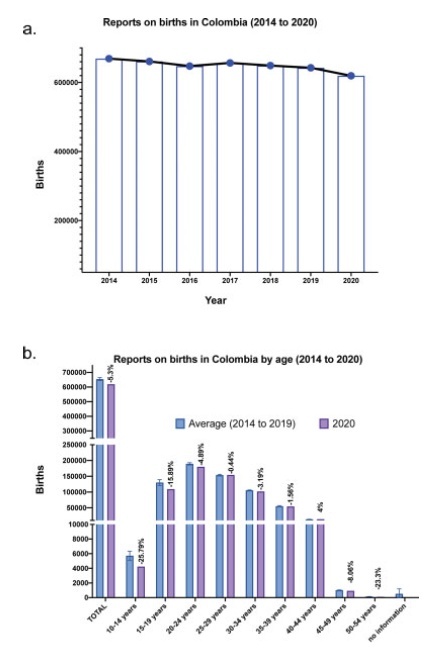Revista Brasileira de Ginecologia e Obstetrícia. 2021;43(6):492-494

The global emergency arising from the rapid spread of the severe acute respiratory syndrome coronavirus 2 (SARS-COV-2) virus, the etiological agent responsible for coronavirus disease 2019 (Covid-19), has resulted in a significant loss of more than 2.5 million human lives across the world until now. On March 12, 2020, Colombia’s authorities declared a state of emergency due to Covid-19, and, by March 25, 2021, have reported 2,359,942 cases and 62,519 deaths attributed to the infection (). Following the recommendation of the World Health Organization (WHO), just a year ago, Colombia’s national government adopted mandatory preventive isolation to reduce new cases of Covid-19. However, despite implementing an early lockdown and having a 97,78% health coverage by the end of 2020, there is still great concern about the quality of care to respond effectively to the needs of infected patients, considering the 29% of accumulated excess of total mortality in 2020, compared with the national historical average.
Besides the direct impact of the novel disease on individual health, the Covid-19 crisis has had significant consequences on the economic growth of the affected populations. Although the non-pharmaceutical interventions applied in most countries, including Colombia, to control the viral transmission and prevent the collapse of health care services, such as lockdowns, isolation, social distancing, and quarantine measures, have shown to be beneficial, they prompted a decline in productivity with a subsequent economic downturn, representing a significant challenge in some vulnerable countries with less developed health systems and lacking the financial ability to respond to the pandemic.
[…]
Search
Search in:


Comments